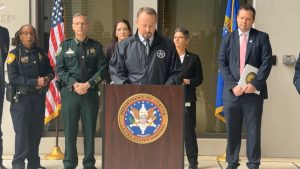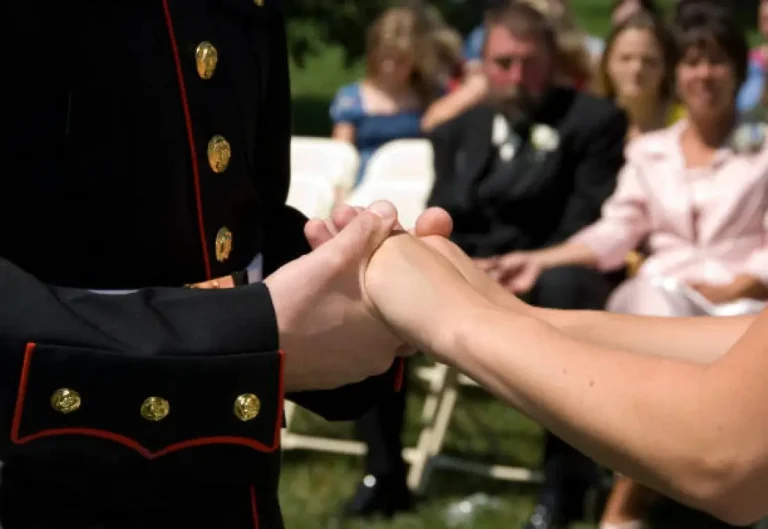The human body has an extraordinary capacity for betrayal. Mine lay sprawled across the cold hardwood floor of what had once been our family dining room, every muscle slack and unresponsive, while my mind remained horrifyingly alert—a prisoner in my own flesh. The irony wasn’t lost on me that as an emergency room nurse, I’d seen countless victims of overdoses and poisonings, never imagining I’d become one myself.
Beside me, my eleven-year-old son Eli had collapsed into a small, motionless heap near his overturned chair. In the dim amber light spilling from the hallway, I could barely make out the shallow rise and fall of his chest beneath his favorite dinosaur t-shirt. Each breath was a small miracle, a threadbare lifeline in the suffocating darkness of our reality. That fragile rhythm became my entire world—the only thing standing between hope and absolute despair.
The silence in our home felt different now, heavy with malevolent purpose rather than the comfortable quiet of an evening meal. Even the familiar sounds of our neighborhood—the distant hum of traffic on Maple Street, the periodic bark of the Henderson’s golden retriever—seemed muted, as if the very air had thickened around us.
Then came the voice that would forever cleave my life into before and after. It was Jared, my husband of twelve years, speaking in a tone I had never heard before—not the warm baritone that had once whispered endearments, nor the increasingly distant monotone of recent months, but something else entirely. Something cold and final.
He stood over us like a dark specter, his silhouette framed against the soft glow from the kitchen. In his hand, the pale rectangle of his phone caught the light as he held it to his ear with the casual confidence of a man conducting ordinary business.
“It’s done,” he whispered into the device, each word falling like a stone into still water. “They won’t last long.”
The words hit me with the force of a physical blow. This wasn’t food poisoning from undercooked meat or a kitchen accident with cleaning chemicals. This was deliberate. Calculated. A death sentence delivered by the man who had once promised to love and protect us until death do us part. The bitter irony of those wedding vows now tasted like ash in my mouth.
I listened to his footsteps—measured, unhurried—as he moved toward the front of our two-story colonial home. Each step echoed with a terrible finality. The soft thud of his shoes on our Persian runner, the creak of the old floorboard near the coat closet, the quiet jingle of keys being retrieved. Then came the sound that would haunt my dreams: the deliberate click of our front door closing, followed by the mechanical hum of the automatic lock engaging.
In that moment, trapped in my paralyzed body, I felt something primal and fierce surge through me—the kind of raw, unstoppable force that had carried me through medical school as a single mother, through double shifts in the ER, through every challenge life had thrown at me. It was the part of me that had been forged in the crucible of raising a child alone before Jared, the part that had never fully trusted anyone else to be Eli’s protector.
A scream of pure rage built in my throat like molten lava, but I forced it down, swallowing the poisonous cocktail of betrayal and terror. Every instinct honed by twelve years in emergency medicine, every survival mechanism sharpened by the fierce, protective love of a mother, crystallized into a single, crystal-clear directive: remain still. We were prey now, and the only way to survive was to convince the predator that the hunt was over.
I forced my head to turn—an action that felt like moving a boulder—until my lips were close to Eli’s ear. His hair smelled like the strawberry shampoo we’d used during his bath just two nights ago, when our biggest concern had been whether he’d finished his math homework.
“Don’t move yet,” I breathed, each word a monumental effort that scraped against my raw throat. “Whatever you do, stay completely still.”
Just six hours earlier, our evening had begun like countless others, wrapped in the comfortable rhythm of suburban routine. I had arrived home from my shift at Mercy General Hospital at exactly 6:47 PM—I remember because I’d glanced at the kitchen clock, mentally calculating how much time I had to throw together dinner before Eli’s bedtime routine began. The house had been filled with the warm aroma of cooking meat and the cheerful sounds of father and son bonding over homework at the kitchen table.
“Mom!” Eli had called out, his face lighting up with that gap-toothed grin that never failed to melt my heart. “Dad’s making steak! Real steak! And he said I could help with the potatoes!”
The sight should have filled me with joy. For months, I’d been watching my family slowly drift apart, like a ship coming loose from its moorings. Jared had become increasingly distant, lost in late-night phone calls he claimed were work-related and weekend “business dinners” that seemed to multiply with each passing week. His construction company had been struggling—or so he told me—and the stress was eating away at the man I’d fallen in love with. But here he was, actually cooking for us, actually engaging with our son.
“A family dinner,” Jared had announced with a brightness that seemed almost manic as he bustled around our kitchen, stirring pots and checking the oven. “We haven’t had one in ages. I thought it was time we reconnected.”
I should have been suspicious of this sudden domesticity from a man who had barely spoken to me beyond logistics for weeks. I should have questioned why he was suddenly so invested in family time when he’d been systematically withdrawing from us for months. But hope is a stubborn, dangerous thing. It blinds you to red flags and makes you cling to the smallest gestures as proof that everything might still be salvageable.
The dining room table—that solid oak table we’d saved for months to buy during our first year of marriage—was set with our good china, the cream-colored set with tiny blue flowers that had been his grandmother’s. Candles flickered in their silver holders, casting dancing shadows on the walls. It looked like a scene from the life I’d always imagined we’d have: stable, loving, normal.
Eli chattered excitedly about his science project on volcanic eruptions, his eyes bright with the kind of enthusiasm that only children possess. He demonstrated how pressure builds beneath the earth’s surface using his hands, complete with explosive sound effects that made even Jared laugh—or what I thought was laughter at the time.
“To us,” Jared had toasted, raising his wine glass with a hand that trembled almost imperceptibly. “To new beginnings.”
The irony of those words would later cut deeper than any blade.
The steak was perfectly cooked, medium-rare with a beautiful sear, exactly how I liked it. But the mashed potatoes—Eli’s favorite—had an odd, metallic aftertaste that I couldn’t quite identify. Something bitter lurked beneath the butter and cream, like a false note in a familiar song. I watched as Eli made a small grimace but continued eating, eager to please his father who so rarely cooked for us.
“You’re not eating much, Naomi,” Jared observed, his voice carrying an edge I couldn’t decipher. “Is something wrong with the food?”
“Just tired from my shift,” I’d deflected, pushing the potatoes around my plate. “Long day in the ER.”
But even as I spoke, I felt the first subtle shift in my body’s equilibrium. A slight dizziness, as if the room had tilted just a degree or two off its axis. My mouth began to feel cottony, my tongue thick and unresponsive. Across the table, Eli’s eyelids were growing heavy, his small hand coming up to rub his eyes in confusion.
“Mom,” he slurred, his voice already losing its usual crisp consonants. “My tummy feels funny… and I’m really sleepy.”
That’s when I saw it—the look in Jared’s eyes. It wasn’t the concern of a worried father or husband. It was something far more chilling: the calculating observation of someone watching an experiment unfold exactly as planned. He wasn’t alarmed by our symptoms; he was monitoring them.
The realization hit me like a physical blow. This wasn’t an accident. This wasn’t contaminated food or a kitchen mishap. This was attempted murder, orchestrated by the man who had held my hand during labor, who had cried when Eli took his first steps, who had promised to love and protect us through sickness and health.
With the last dregs of my coordination, I lurched from my chair, my legs already feeling like they belonged to someone else. “Eli,” I managed to say, reaching for him. “Come here, baby.”
As my knees buckled and the room spun wildly around me, I grabbed Eli’s arm and pulled him down with me, deliberately collapsing behind the table where we’d be partially hidden from Jared’s view in the kitchen. I made the fall look as natural as possible, as if we’d both simply succumbed to whatever was happening to us.
Through the haze of whatever drug was coursing through my system, I forced myself to remain still, to control my breathing, to play the part of an unconscious victim. Every fiber of my being screamed to get up, to fight, to protect my son, but my years of medical training kicked in. I knew that showing consciousness now could mean our deaths.
I heard Jared’s footsteps approach, measured and unhurried. He stood over us for what felt like an eternity, and I could feel his gaze assessing us, confirming that his plan had worked. Then came the phone call that confirmed my worst fears.
“It’s done,” he said quietly, his voice carrying none of the warmth I’d once loved. “They won’t last long.”
There was a pause, and I could hear a tinny voice responding from the other end of the line, though I couldn’t make out the words.
“No, it was clean,” Jared continued. “Looks like food poisoning. By the time anyone finds them, it’ll be too late to detect anything unusual. I’ll be long gone.”
The casual, business-like tone of his voice as he discussed our deaths was perhaps the most chilling aspect of the entire ordeal. This wasn’t a crime of passion or a moment of temporary insanity. This was cold, premeditated murder, discussed with the same detachment he might use to review quarterly sales figures.
His footsteps retreated toward the front door, and I heard the familiar sounds of his departure routine—keys jingling, the closet door opening as he grabbed his jacket, the security system beeping as he set it. Then the front door opened and closed with its characteristic squeak and thud, followed by the automatic lock clicking into place.
Silence descended like a suffocating blanket. In that moment, lying motionless on our dining room floor with my son’s small body beside me, I felt the full weight of our isolation. We were alone in a house that had become our tomb, with no way to call for help and a clock ticking down to our deaths.
But I was still breathing. Eli was still breathing. And as long as that remained true, I would fight.
The minutes that followed felt like hours. I forced myself to count slowly to one hundred, my heart hammering against my ribs so violently I was certain it would give me away. Every small sound—the house settling, the refrigerator cycling on, a car passing on the street—sent jolts of terror through me as I imagined Jared returning to check on his handiwork.
When I was reasonably certain he was gone, I turned my head toward Eli, a movement that required every ounce of strength I possessed.
“Eli,” I whispered, my voice barely audible even to my own ears. “Eli, can you hear me?”
A soft groan was his only response, but it was the most beautiful sound I’d ever heard. He was still with me. Still fighting.
“Listen to my voice, baby,” I continued, trying to keep the terror out of my tone. “Just focus on my voice. We’re going to play a game now. It’s called the Quiet Game. The quietest, most important game we’ve ever played. Can you do that for me?”
“Okay, Mom,” he mumbled, his words thick and slurred but coherent. “But my head feels all fuzzy and weird.”
“I know, sweetheart. I know it does. But we need to be very brave right now. We need to get the bad food out of our bodies. Do you think you can crawl? Can you follow me to the guest bathroom?”
The guest bathroom was our best option—it was at the back of the house, away from any windows facing the street, and it had a lock on the door. If Jared returned, we’d have a few precious moments of warning before he could reach us.
Eli, my brave, remarkable boy, began to move. His limbs were uncoordinated and clumsy, like a newborn foal trying to stand, but he was moving. I followed behind him, dragging my own useless legs across the hardwood floor, each inch a monumental effort that left me gasping and sweating despite the coolness of the evening.
The ten-foot journey from our dining room to the guest bathroom felt like crossing an endless desert. My arms trembled with the effort of pulling my body forward, and several times I had to stop and rest, fighting waves of nausea and dizziness that threatened to pull me back into unconsciousness. Behind me, I could hear Eli’s labored breathing as he struggled with his own paralyzed limbs.
When we finally reached the bathroom, I used the doorframe to pull myself upright long enough to turn the lock and flip on the light. The sudden brightness was harsh and unforgiving, illuminating our pale, sweat-dampened faces in the mirror above the sink. We looked like ghosts of ourselves.
I turned on the faucet, letting the water run at full force. The sound would provide some cover for what we had to do next, and might mask any noise we made from anyone who might be listening outside.
“Okay, honey,” I said, my voice gaining strength from necessity. “This is going to be really hard, but we have to be brave. We need to make ourselves sick. We need to get the bad food out of our bodies.”
In all my years as an emergency room nurse, I’d never imagined I’d be teaching my own child how to induce vomiting to save his life. The medical training I’d relied on countless times to save others now became our lifeline.
I showed him how, forcing my own fingers down my throat until my body convulsed in violent, purging spasms. The taste was horrible—bitter and chemical, confirming what I already knew. This wasn’t food poisoning. This was something far more sinister.
Eli, his face pale and streaked with tears of pain and confusion, followed my lead with the kind of trust that only a child has in his mother. It was simultaneously the most heartbreaking and necessary thing I’d ever asked of him.
“That’s it, baby,” I encouraged through my own waves of nausea. “Get it all out. You’re being so brave.”
We took turns, supporting each other through the violent process of purging the poison from our systems. With each heave, I felt my thinking clear slightly, the fog in my brain lifting degree by agonizing degree. My limbs, while still weak and unsteady, began to respond to my commands again.
As the immediate crisis of the poisoning began to subside, the full magnitude of our situation crashed over me like a cold wave. We were alive, but we were far from safe. Jared had planned this meticulously—he wouldn’t have left loose ends.
I reached for my phone, my hands still trembling from the aftereffects of the drug. The screen was completely black. Not just a dead battery, but utterly lifeless, as if someone had deliberately destroyed it. My mind raced to the landline in the hallway, but even before I could check, I knew what I’d find.
“Stay here,” I whispered to Eli, who was now sitting on the bathroom floor, leaning against the wall with his eyes closed. “I’ll be right back.”
The hallway felt like a gauntlet as I made my way to the phone mounted near the kitchen entrance. Sure enough, the cord had been neatly severed, the cut clean and deliberate. Not torn or accidentally damaged, but sliced with surgical precision. Jared hadn’t just been opportunistic in his timing; he had been methodical in cutting off our lifelines to the outside world.
The full scope of his planning began to dawn on me. This wasn’t a sudden decision or a crime of passion. This was a calculated execution, planned and orchestrated with the same attention to detail he brought to his construction projects. How long had he been plotting this? How many nights had he lain beside me in bed, planning my death?
I returned to the bathroom where Eli sat slumped against the wall, his color slowly returning but his eyes still glazed and unfocused.
“Mom, what’s happening?” he asked, his voice small and frightened. “Why do I feel so sick? Where did Dad go?”
How do you explain to an eleven-year-old that his father just tried to murder him? How do you shatter a child’s world while simultaneously trying to save his life?
“Dad had to go somewhere,” I said carefully, kneeling beside him and pulling him into my arms. “But right now, we need to focus on feeling better. The medicine I gave you—” I couldn’t bring myself to call it poison, not yet “—is going to make you feel sleepy and confused for a while longer.”
“Are we going to be okay?” he asked, and the trust in his voice nearly broke me.
“Yes,” I said with a conviction I didn’t entirely feel. “We are going to be okay. But we need to leave the house now. Can you walk?”
Testing my own legs, I found they would support my weight, though barely. Everything felt distant and disconnected, like I was controlling my body through thick gloves. But it was enough. It had to be enough.
“We’re going to Miss Leverne’s house,” I told Eli as I helped him to his feet. “Remember how she always tells us to come over if we ever need anything? Well, we need help now.”
Margaret Leverne lived directly across from us in a modest ranch home that she’d maintained with military precision since retiring from the Army fifteen years ago. At seventy-three, she still kept a garden that could grace the cover of a magazine and a mind sharp enough to remember every detail of every conversation we’d ever had. More importantly, she was the kind of woman who asked questions first and judged never—exactly what we needed.
I grabbed the heavy Maglite flashlight from under the bathroom sink, testing its weight in my hand. It wasn’t much of a weapon, but it was something. As we prepared to leave our sanctuary, I felt the full weight of what we were about to do. We were fleeing our own home, running from the man who was supposed to protect us.
We crept through the house like burglars, avoiding the floorboards I knew creaked, staying low and close to the walls. Our home—the place where Eli had taken his first steps, where we’d hung his finger paintings on the refrigerator, where we’d carved jack-o’-lanterns just last Halloween—now felt like enemy territory.
I led us toward the garage, bypassing the front door entirely. If Jared was watching the house or had someone else monitoring it, the garage was our best chance of an undetected escape. The manual release cord for the garage door hung like a lifeline, and I pulled it with all my remaining strength.
The grinding sound of the heavy door rolling up its tracks seemed impossibly loud in the quiet neighborhood, like a fire alarm announcing our escape. I pressed myself against the doorframe, peering out into the night.
Our driveway was empty. Jared’s black BMW was gone, leaving only the oil stain where it usually sat and the lingering scent of exhaust. The street beyond was quiet, bathed in the orange glow of streetlights and dotted with the familiar shapes of our neighbors’ homes.
“Miss Leverne’s house,” I whispered, pointing across our small front yard to the neat ranch home with its perfectly manicured lawn and solar lights lining the walkway. “Run as fast as you can. Don’t look back. Just run.”
Eli nodded, his face set with a determination that made him look older than his eleven years. Without another word, he took off across the grass, his bare feet silent on the dew-dampened lawn. I followed as quickly as my still-unsteady legs would carry me, the flashlight clutched in my hand like a talisman, my head swiveling constantly to scan for any sign of headlights or movement in the shadows.
The distance between our homes had never seemed so vast. Every step felt exposed, vulnerable, as if we were crossing a minefield rather than a suburban lawn. The cool night air was sharp in my lungs, and I could taste the metallic residue of whatever drug Jared had used, a constant reminder of how close we’d come to death.
By the time I reached Miss Leverne’s front porch, Eli was already pounding on her door with both fists, his small frame vibrating with urgency and residual fear.
“Miss Leverne! Miss Leverne, please!” he called out, his voice cracking with desperation.
The porch light blazed to life, and the door swung open to reveal Margaret Leverne in her practical flannel robe, her silver hair in rollers, but her gray eyes sharp and alert despite the late hour. She took in our disheveled appearance—our pale faces, our frightened expressions, our obvious distress—and her demeanor shifted instantly from surprised neighbor to take-charge emergency responder.
“Naomi? Eli? Good Lord, what’s happened?” she demanded, her voice carrying the authoritative tone that had once commanded respect from soldiers under her supervision.
“He poisoned us,” I gasped, the words tumbling out in a rush now that we were safe, or at least safer. “Jared. My husband. He put something in our food and tried to kill us.”
For just a moment—barely a heartbeat—shock flickered across her weathered features. Then her expression hardened into something that reminded me why she’d been such an effective commanding officer. This was a woman who had faced down armed insurgents and managed field hospitals under fire. A domestic crisis, even one this horrific, was something she could handle.
“Inside. Both of you. Now,” she commanded, pulling us through her doorway and immediately throwing the deadbolt. “You’re safe here. I’ve got you.”
Her living room was exactly as I’d always imagined it—neat as a military barracks, with framed commendations on the walls and books arranged with geometric precision on built-in shelves. She settled us on her burgundy sofa, wrapping us in afghans that smelled like lavender and safety, then moved to her kitchen with purposeful strides.
“This is Margaret Leverne at 412 Maple Street,” she said into her phone, her voice calm and clear as she spoke to the 911 operator. “I have two victims of attempted poisoning who need immediate medical attention and police response. The perpetrator is the victims’ husband and father, and he may still be in the area.”
As she spoke, she never took her eyes off us, as if she could keep us alive through sheer force of will. I had never been more grateful for a neighbor’s nosiness and military training.
“Yes, they’re conscious and breathing,” she continued. “The woman is a nurse at Mercy General, and she induced vomiting for both herself and her child. Yes, I’ll stay on the line.”
Within minutes that felt like hours, our quiet suburban street erupted into controlled chaos. Red and blue lights painted the neighboring houses in alternating colors, and the night filled with the purposeful voices of paramedics and police officers. Through Miss Leverne’s front window, I could see uniformed figures moving around our house with flashlights, treating it like the crime scene it had become.
The paramedics were gentle but thorough, checking our vital signs and starting IV lines with practiced efficiency. As the fluids began to restore my body’s balance, my mind cleared enough to provide them with crucial information.
“Benzodiazepine,” I told the lead paramedic, a young woman whose name tag read “Rodriguez.” “Based on the onset and symptoms, probably something fast-acting like midazolam or triazolam. It was in the mashed potatoes—bitter metallic taste, rapid onset of sedation and muscle weakness.”
She nodded grimly, making notes on her chart. “We’ll run a full tox screen, but your quick thinking probably saved both your lives. How long between ingestion and induced vomiting?”
“Maybe twenty minutes,” I estimated. “Thirty at most.”
“You bought yourselves crucial time,” she said. “In a child his size, the dose you’re describing could have been fatal within an hour.”
At Mercy General Hospital—my own workplace, which now felt surreal to enter as a patient rather than a caregiver—the full scope of Jared’s crime began to emerge. The toxicology results confirmed my suspicions: a massive dose of midazolam, a powerful sedative typically used in medical settings for procedures requiring unconsciousness. In the concentrations found in our blood, it was nothing short of a chemical weapon.
Dr. Patricia Chen, the attending physician who treated us, had worked with me countless times in the ER. Seeing her professional mask slip into personal concern was both comforting and unsettling.
“Naomi, the amount we detected in both your systems…” she said quietly, reviewing our lab results. “In a child Eli’s size, this dose would have caused respiratory failure within forty-five minutes to an hour. You getting it out of your systems when you did—it’s the only reason you’re both alive.”
Detective Sarah Martinez, a compact woman with intelligent dark eyes and a notebook that never left her hand, interviewed us with a combination of professional thoroughness and genuine compassion. As I recounted the evening’s events, I watched her expression grow darker with each detail.
“The severed phone lines, the disabled cell phone, the precise timing,” she mused, making notes. “This wasn’t impulsive. This was planned well in advance. We’re going to need to dig deep into his recent activities.”
It was during that interview, as Eli slept in the hospital bed beside me under the careful watch of a security guard, that my sister Alina arrived. Her face was a mask of guilt and devastation that immediately told me she was carrying a burden almost as heavy as mine.
“Naomi,” she began, her voice thick with unshed tears. “I have to tell you something. I should have told you months ago, but I was hoping… I was hoping it would just end and you’d never have to know.”
The words that followed hit me like a second poisoning, this one emotional rather than chemical.
“Jared’s been having an affair,” she said, the words rushing out as if speed could somehow lessen their impact. “I’ve known for two months. I saw them together at that new restaurant downtown, and I… I followed them. They went to a condo in the Riverside district. A really expensive place.”
I stared at her, processing this information through the fog of medication and exhaustion. An affair explained some of Jared’s recent behavior—the secretive phone calls, the late nights, the emotional distance. But it didn’t explain attempted murder.
“Why didn’t you tell me?” I asked, though the words came out more weary than angry.
“I thought it was just a mid-life crisis,” she said, tears finally spilling over. “I thought maybe he’d come to his senses and come back to you and Eli. I didn’t want to destroy your family over something that might blow over. I never imagined…” she gestured helplessly at the hospital room around us, “this.”
The betrayal felt layered now, like an archaeological dig through deception. My husband had been planning to murder us. My sister had been keeping secrets that might have saved our lives if revealed earlier. The very foundations of my world had been crumbling while I remained oblivious, focused on saving other people’s lives at the hospital while my own family disintegrated.
But even the affair didn’t explain the attempted murder. Plenty of men leave their families for other women without resorting to homicide. There had to be more to the story, something that made killing us seem preferable to divorce.
The answer came three days later, when Detective Martinez returned with information that recontextualized everything I thought I knew about my husband and our marriage.
“We’ve been investigating Jared’s finances and this woman he’s involved with,” she began, settling into the visitor’s chair beside my hospital bed. “Her name is Victoria Ashford. She’s thirty-two, never married, and she’s the sole heir to a shipping fortune worth approximately forty-seven million dollars.”
The number hung in the air like smoke. Forty-seven million dollars. It was an amount so vast I couldn’t quite comprehend it in personal terms.
“But here’s the interesting part,” Detective Martinez continued. “Victoria’s father was apparently quite controlling. When he died last year, he left his entire estate to her with one very specific condition: she could only inherit if she married a man with what the will calls a ‘clean slate’—no previous marriages, no children, no significant debts or financial obligations to others.”
The final piece of the puzzle clicked into place with sickening clarity. Jared hadn’t just been planning to leave us for another woman. He’d been planning to erase us entirely, to eliminate every trace of his previous life so he could step into a new identity as Victoria’s unburdened husband.
“We weren’t just inconvenient,” I said, the words feeling strange and hollow as I spoke them. “We were obstacles to forty-seven million dollars.”
“That’s exactly right,” the detective confirmed. “In his mind, you and Eli weren’t people anymore. You were problems to be solved.”
The psychological evaluation that was later conducted during Jared’s trial revealed a man who had compartmentalized his life to an extraordinary degree. To him, we had become abstract obstacles rather than human beings with whom he’d shared years of love, laughter, and daily life. The psychologist described it as a form of moral disengagement that allowed him to justify the unjustifiable.
They arrested Jared at Philadelphia International Airport eighteen hours after our near-death experience. He’d been attempting to board a one-way flight to Belize using a passport with a false name—Marcus Webb—carrying a duffel bag containing nearly thirty thousand dollars in cash and detailed documentation about offshore bank accounts. The man who caught was a stranger wearing my husband’s face, someone who had spent months planning not just our deaths but his own complete transformation.
The trial that followed was a media sensation that I tried to shield Eli from as much as possible. The prosecutor, a sharp-tongued woman named Amanda Foster, painted a picture of premeditation that was as thorough as it was chilling. Bank records showed Jared had been slowly siphoning money from our joint accounts for eight months. Phone records revealed hundreds of calls to Victoria Ashford, many of them late at night when he claimed to be working.
Most damning of all was the procurement of the midazolam itself. Security footage from a veterinary supply company showed Jared purchasing it under false pretenses, claiming he needed it for a construction site injury in a worker who couldn’t afford proper medical care. The lie was sophisticated enough to convince the sympathetic clerk, but detailed enough to hang him in court.
During the trial, I had to face Jared across a courtroom, and I searched his face for any trace of the man I’d married, the father who had once stayed up all night when Eli had pneumonia, the husband who had surprised me with breakfast in bed on our anniversary. But that man was gone, if he had ever truly existed at all. In his place sat a stranger who looked at me with the cool indifference of someone viewing an old photograph.
The most surreal moment came when Victoria Ashford took the stand as a witness for the prosecution. She was beautiful in an effortless way that spoke of private schools and summer homes, with the kind of confidence that comes from never having to worry about money. But as she testified about their relationship, I saw something unexpected in her eyes: genuine shock and horror.
“He told me he was divorced,” she said, her voice barely above a whisper. “He said his ex-wife had custody of his son and that they lived in another state. He showed me fake documents… fake custody papers. I had no idea they were still married. I certainly had no idea about any of this.”
She’d been a victim too, in her own way, manipulated by a man who had crafted an entirely false persona. The inheritance, she revealed, had been structured by her father as a way to ensure she married someone who loved her for herself rather than her money. The cruel irony was that Jared had been willing to kill for money she would have gladly given up for love.
Jared’s defense attorney, a weary-looking man who seemed to know he was fighting a losing battle, attempted to argue temporary insanity brought on by financial stress and marital problems. But the evidence of premeditation was overwhelming. The fake passport, the offshore accounts, the methodical elimination of our communication methods—these weren’t the actions of a man having a breakdown, but of someone executing a carefully planned crime.
When the guilty verdict was read, I felt no satisfaction, no sense of justice served. Only a hollow exhaustion and the profound sadness of watching the father of my child be sentenced to life in prison without the possibility of parole. Eli, who had been staying with Alina during the trial, would grow up knowing that his father had tried to kill him. No amount of therapy or time could ever completely heal that wound.
The months that followed were a careful process of rebuilding lives that had been shattered beyond recognition. Eli and I moved in with Alina and her family temporarily, sleeping in her guest room while we figured out how to construct a new normal from the wreckage of our old life.
The nightmares came in waves for both of us. Eli would wake up screaming, convinced he could taste metal in his mouth. I would jolt awake at 3 AM, my body rigid with the memory of paralysis. We started therapy—individual sessions for both of us and family counseling together—slowly learning to process a trauma that defied easy categorization.
Dr. Rebecca Walsh, our family therapist, helped us understand that healing from this kind of betrayal wasn’t just about processing fear or grief, but about rebuilding our fundamental trust in the world. “When someone who’s supposed to protect you tries to harm you,” she explained, “it shakes your basic assumptions about safety and love. Recovery means learning to trust again, starting with trusting yourselves.”
The practical challenges were as overwhelming as the emotional ones. Our house, once our sanctuary, was now a crime scene that held insurance companies and legal proceedings in limbo. I had to find a new place for us to live, somewhere.

Emily Johnson is a critically acclaimed essayist and novelist known for her thought-provoking works centered on feminism, women’s rights, and modern relationships. Born and raised in Portland, Oregon, Emily grew up with a deep love of books, often spending her afternoons at her local library. She went on to study literature and gender studies at UCLA, where she became deeply involved in activism and began publishing essays in campus journals. Her debut essay collection, Voices Unbound, struck a chord with readers nationwide for its fearless exploration of gender dynamics, identity, and the challenges faced by women in contemporary society. Emily later transitioned into fiction, writing novels that balance compelling storytelling with social commentary. Her protagonists are often strong, multidimensional women navigating love, ambition, and the struggles of everyday life, making her a favorite among readers who crave authentic, relatable narratives. Critics praise her ability to merge personal intimacy with universal themes. Off the page, Emily is an advocate for women in publishing, leading workshops that encourage young female writers to embrace their voices. She lives in Seattle with her partner and two rescue cats, where she continues to write, teach, and inspire a new generation of storytellers.









